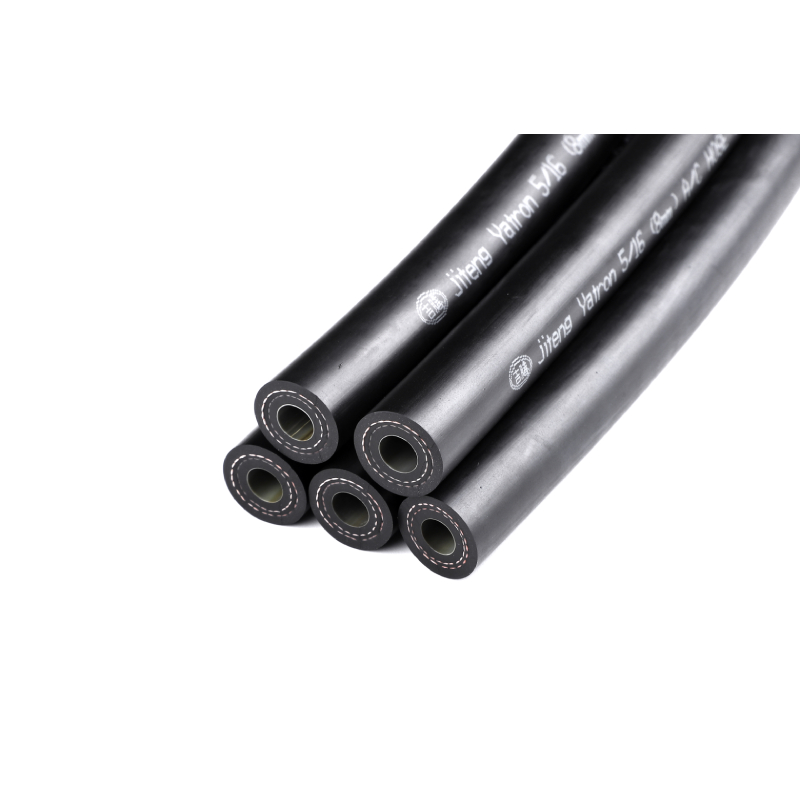Enhanced AC Hose with Reduced Barrier Technology for Optimal Performance and Efficiency
Dec . 20, 2024 03:13 Back to list
Enhanced AC Hose with Reduced Barrier Technology for Optimal Performance and Efficiency
Understanding Reduced Barrier AC Hose A Key Component in Automotive Air Conditioning Systems
When it comes to automotive air conditioning systems, efficient temperature control and performance are critical factors in ensuring driver comfort and vehicle functionality. Among the various components that contribute to these systems, the AC hose—specifically, the reduced barrier AC hose—plays an essential role. This specialized hose is designed to minimize refrigerant loss and maintain operational efficiency, making it a vital consideration for manufacturers and mechanics alike.
What is a Reduced Barrier AC Hose?
A reduced barrier AC hose is engineered with a specific focus on lowering the permeation of refrigerants, particularly hydrofluorocarbons (HFCs) commonly used in modern air conditioning systems. Unlike standard AC hoses, which may allow a certain amount of refrigerant to escape over time, reduced barrier hoses are constructed with advanced materials that offer superior resistance to permeation. This means they are less prone to leaks, which can lead to decreased performance and increased environmental impact.
Significance of Reduced Barrier Technology
The importance of reduced barrier technology cannot be overstated. Refrigerants used in automotive AC systems, such as R-134a and R-1234yf, are potent greenhouse gases. The gradual leaking of these substances contributes to climate change, prompting regulatory agencies worldwide to impose stricter regulations on automotive emissions and refrigerant management. By utilizing reduced barrier AC hoses, manufacturers are taking proactive steps to ensure compliance with these regulations while enhancing the performance and lifespan of the air conditioning systems.
Advantages of Reduced Barrier AC Hoses
reduced barrier ac hose

1. Enhanced Efficiency With reduced refrigerant loss, vehicles equipped with reduced barrier AC hoses can maintain optimal performance levels. This efficiency translates into better cooling capabilities, allowing drivers and passengers to experience consistent comfort regardless of external weather conditions.
2. Longer Lifespan The durable materials used in reduced barrier hoses contribute to a longer service life. This extended lifespan prevents frequent replacements and repairs, saving time and resources for both manufacturers and consumers.
3. Environmental Responsibility Using reduced barrier AC hoses aligns with the growing demand for eco-friendly technologies in the automotive industry. By minimizing refrigerant leakage, manufacturers can reduce the overall environmental footprint of their vehicles. This approach reinforces corporate responsibility and supports global initiatives aimed at combating climate change.
4. Cost-Effective Solutions While the initial investment in reduced barrier AC hoses may be higher than traditional options, the long-term cost savings associated with reduced maintenance and increased efficiency can outweigh the upfront costs. Lower refrigerant replacement needs and fewer repairs contribute to overall cost-efficiency for vehicle owners and manufacturers.
Conclusion
In summary, reduced barrier AC hoses are a crucial innovation in automotive air conditioning technology. By addressing the challenges of refrigerant leakage and enhancing system efficiency, these hoses support optimal vehicle performance while promoting environmental sustainability. As the automotive industry continues to evolve with stricter regulations and growing emphasis on eco-friendly practices, the adoption of reduced barrier technology will likely become increasingly common. For vehicle manufacturers and owners alike, investing in quality reduced barrier AC hoses is not just a smart choice; it is a responsible step towards a more sustainable and efficient automotive future. With continued advancements in material science and engineering, the development of even more effective solutions will be essential in the ongoing quest to improve vehicle performance and environmental impact.
